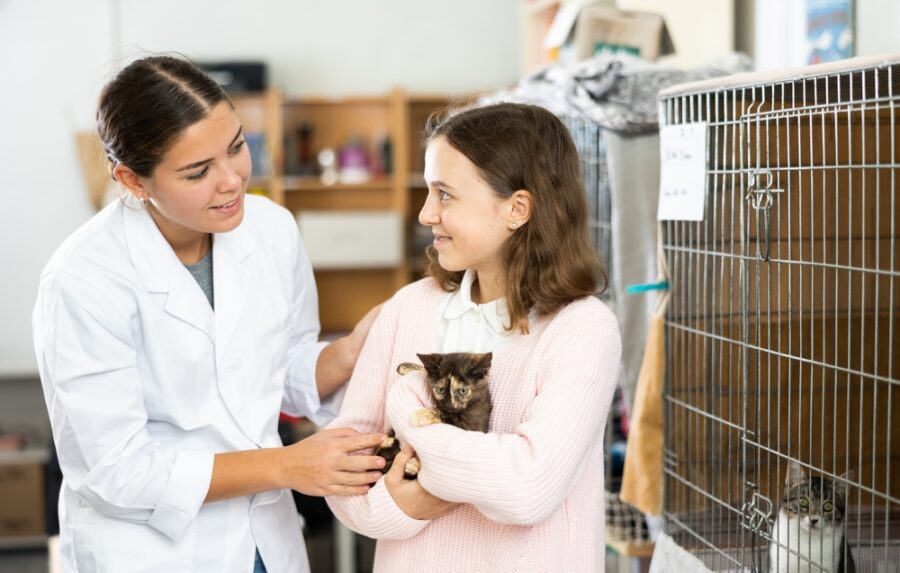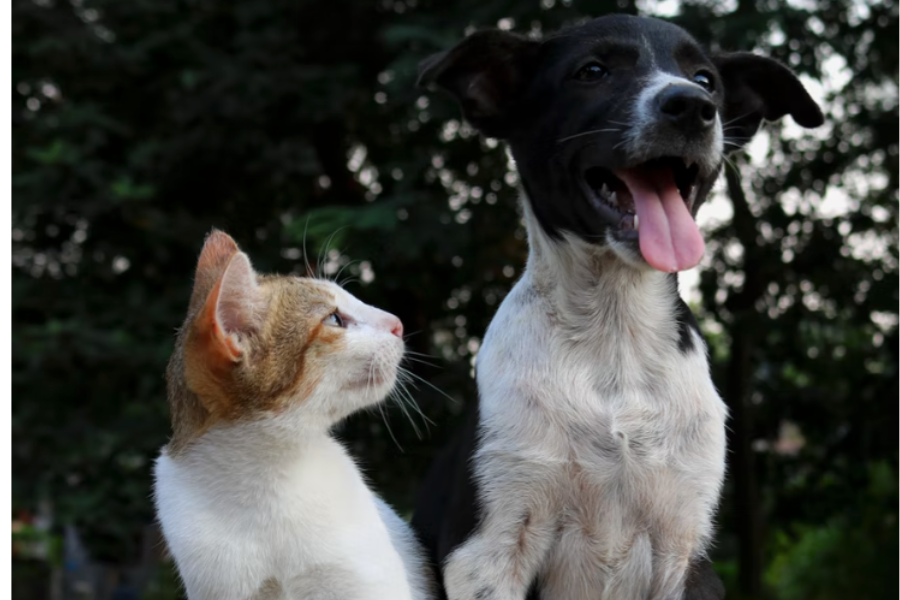Over the past two decades, veterinary social work has grown into an entire field of practice. Recent innovations have yielded significant developments that benefit a wide range of human-animal interactions, in veterinary medicine and beyond.
Its been over 20 years since the launch of the Veterinary Social Work program at the University of Tennessee, Knoxville. Born out of a collaboration between the UT College of Social Work and the College of Veterinary Medicine, the program has grown from clinical services in the veterinary teaching hospital to an entire field of practice that has spread not only across the United States, but internationally. Recently, veterinary social work has undergone a growth spurt that has resulted in some significant developments in the field.
CHANGES TO THE MODEL
Veterinary social work is a specialty area that addresses human needs arising at the intersection of veterinary medicine and social work practice. Veterinary social work is inherently interdisciplinary, because in every human-animal interaction there is at least one person and one non-human animal. Social workers have the skills and expertise to work with the human needs that may impact this interaction, and rely on those in animal-related professions to address the needs of the non-human animal. By working together in a comprehensive collaborative approach, it is more likely the needs of everyone involved, no matter the species, will be met.
Approaching human-animal interactions from a One Health lens, the model for veterinary social work divides these needs into four general overlapping categories of practice:
- Animal Assisted Interventions (AAI)
- Animal-related grief and bereavement
- The link between human and animal violence
- Intentional well-being (the recently renamed area)
Formerly known as compassion fatigue and conflict management, the fourth area of the veterinary social work model has always been dedicated to the health of animal-related professionals, particularly in response to the stressful nature of the work. However, as the field grew and more research was conducted, it became clear that while compassion fatigue and conflict management are still highly relevant, the title for this area of practice was not broad enough to encompass all the topics impacting the wellness of people in animal-related professions, such as trauma, burnout, communication, moral distress, organizational climate and culture, to name a few. The new name of this area of practice intentional well-being highlights the goal of creating healthy individuals and systems within the human-animal sphere, while also acknowledging that creating health requires purposeful action.
EXPANDING SETTINGS FOR PRACTICE
While many people assume veterinary social workers only work in veterinary clinics, they may be found wherever people interact with animals. While you might typically think of people and their pets when you think about human-animal interactions, the reality is that human-animal interactions occur in myriad ways. Whether it is a police officer and his K9 officer; a farmer and his herd; someone with a disability and their service dog; a lab researcher and the mice they are testing; an adoption counselor in a high-volume animal shelter; or a wildlife rehabilitator challenges can arise in each of the four areas of veterinary social work practice. As more people become aware of the field of veterinary social work, and the services veterinary social workers can provide, the greater the demand for them becomes.
In addition to more veterinary social workers being hired in veterinary clinics and hospitals, there has been a greater demand for mental health professionals in private practice who specialize in veterinary social work. A recent study by Pew Research found that 97% of pet owners consider their pets to be part of the family, and nearly half say their pets are equal to human family members. With that in mind, its easy to understand why more people may be seeking pet loss support. Veterinary social workers in private practice are also a great resource for animal-related professionals seeking mental health support. Because veterinary social workers are educated on the realities of working in a veterinary or animal welfare field, animal professionals are spared having to explain why their job might be stressful and may be able to more quickly build rapport with their therapist.
Veterinary social workers are also becoming more common in animal shelters. As animal shelters strive to prevent pets from being surrendered, veterinary social workers have the knowledge and skill set to help keep families together, whether it is by connecting pet owners with financial resources or emergency boarding, or making referrals to mental health, medical, or domestic violence services. Animal shelter staff also benefit from organizational well-being initiatives and individual consultations with veterinary social workers, which can improve morale and decrease turnover.
VETERINARY SOCIAL WORK INFORMED PRACTICE
As the field of veterinary social work has grown, so has the interest and desire from veterinarians and veterinary nurses to become involved. Many find themselves asking: Do I need to go back to school to become a social worker? The answer to that question is: it depends!
If youre a veterinary professional, but want to change your focus to the people side of the human-animal relationship, you might consider becoming a mental health professional. A mental health professional is someone with the required education and licensing to assess, diagnose, and treat mental illness. If this sounds like what you want to do, you will need to go back to school.
Social work is a title protected profession in most states, which means that in order to be a social worker, you need a degree in social work from a college or university accredited by the Council on Social Work Education. A masters degree and a license to practice, which may require 2,000 to 4,000 hours of supervised practice depending on your location, as well as passing an examination, are required to be able to practice independently.
However, if you want to stay in the veterinary profession but still help support people in your practice and field, you can do that, too! The idea of Veterinary Social Work Informed Practice means that a veterinary professional or clinic approaches the work they do through the lens of veterinary social work values and the four areas of practice. In doing so, one is able to support clients and staff within the veterinary setting, while being aware of when more intensive services might be needed, and referring to mental health professionals as appropriate.




